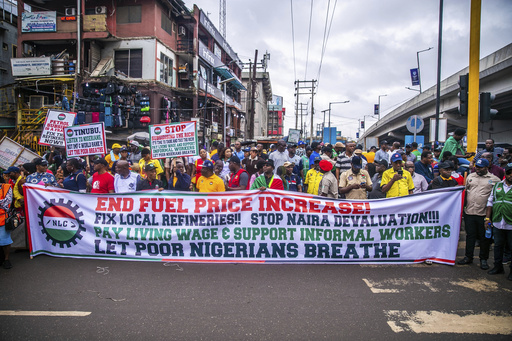Thousands of predominantly young people took to the streets throughout Nigeria on Thursday to demonstrate against the country’s most severe cost-of-living crisis in decades. Security forces used tear gas to scatter protesters in various locations.
In Abuja, where a court ruling had limited the protest to a stadium, Nigerian police officers were observed dispersing a crowd of protesters with tear gas near the Presidential Villa. Tear gas was also used on protesters in Bauchi and Borno states in the conflict-ridden northeast, with unclear reports on any arrests made.
Nigeria’s officials, often accused of corruption, rank among the highest-paid in Africa, a sharp contrast in a nation that, despite being a major oil producer, is home to some of the world’s most impoverished citizens. Roads were blocked by protesters carrying placards or armed security forces in different parts of the country following days of preparations for demonstrations against President Bola Tinubu’s administration, with some groups expressing support for the leader.
Concerns had been raised by rights groups and activists about a potential crackdown on the protests. Human Rights Watch highlighted recent statements suggesting a willingness to suppress dissent, increasing fears of a violent crackdown. Numerous businesses shut down on Thursday amid concerns that the protests could mirror the deadly 2020 demonstrations against police brutality or the chaos seen in Kenya last month due to a tax increase.
Protesters, carrying placards, bells, and Nigeria’s flag, voiced their demands, including the reinstatement of gas and electricity subsidies removed as part of the government’s reform efforts to bolster the economy, which subsequently led to increased prices across the board. “People are fed up and angry because we deserve better,” stated protester Jude Sochima in Abuja.
Although initially planned for ten days, protest organizer and former presidential candidate Omoyele Sowore declared that they will not cease until their demands are addressed. Protesters also expressed grievances over the country’s dire security situations in the conflict-affected north, which Tinubu had pledged to resolve during his presidential campaign. Official data indicates that fourteen months into his tenure, both the country’s security and economic challenges persist, with some worsening.
